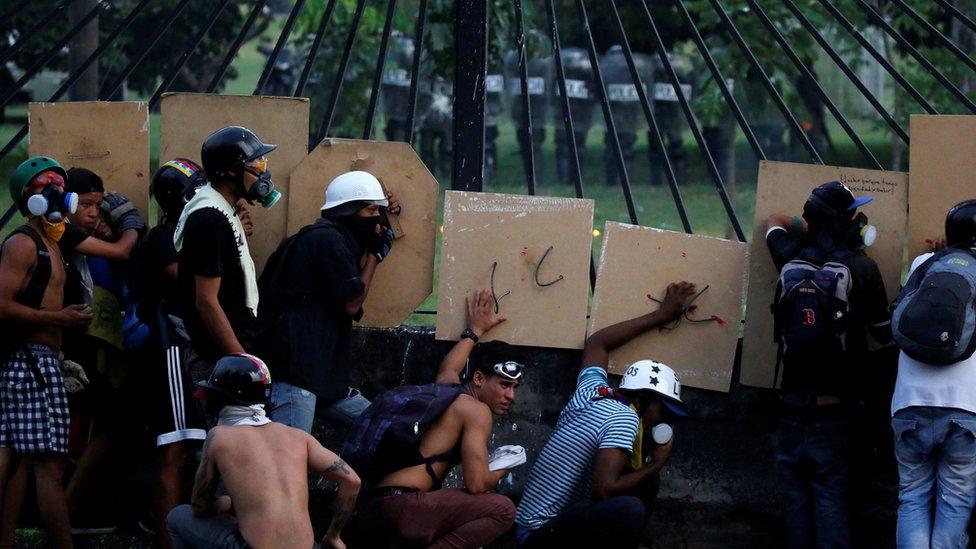Venezuela: Two more killed in Venezuela protests
- Published
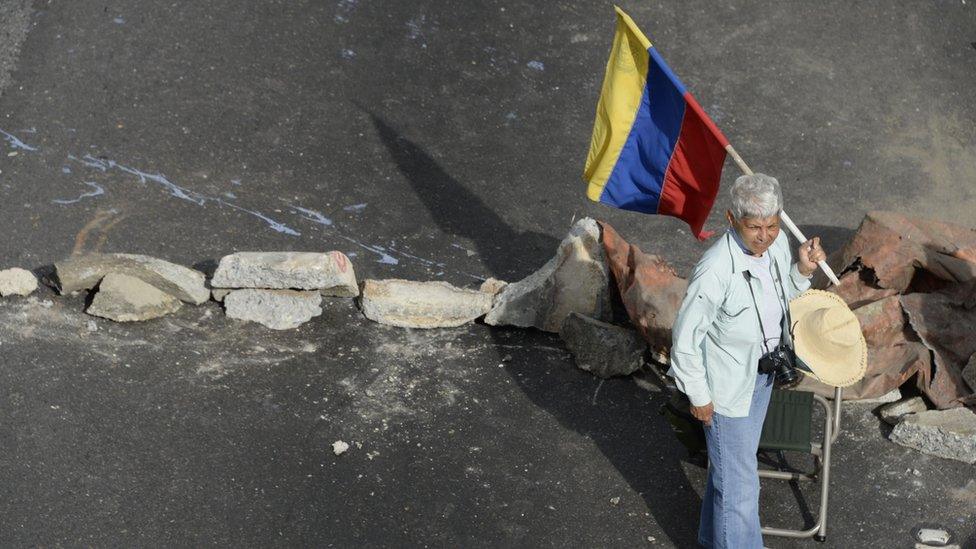
Near-daily demonstrations began seven weeks ago.
Two people - including a teenager - have been killed during anti-government protests in Venezuela.
Yeison Mora Castillo, 17, was killed during demonstrations in central Barinas state, while Diego Arellano, 31, died on the operating table after being shot in Miranda state.
Since near-daily demonstrations began seven weeks ago, 42 people have died.
Protesters are demanding early elections and an end to the country's deep economic crisis.
Luis Almagro, head of the Organization of American States and one of President Nicolas Maduro's harshest international critics, called for the government to be held to account over the deaths.
He told news agency AFP: "They cannot go on killing and torturing people, and getting away with it."
The authorities earlier announced the deaths of Luis Alviarez, 17, and Diego Hérnandez, 33, who were fatally injured on Monday.
A 27-year-old police officer is being charged in connection with Mr Hérnandez's death, the prosecutors' office announced on its Twitter account.
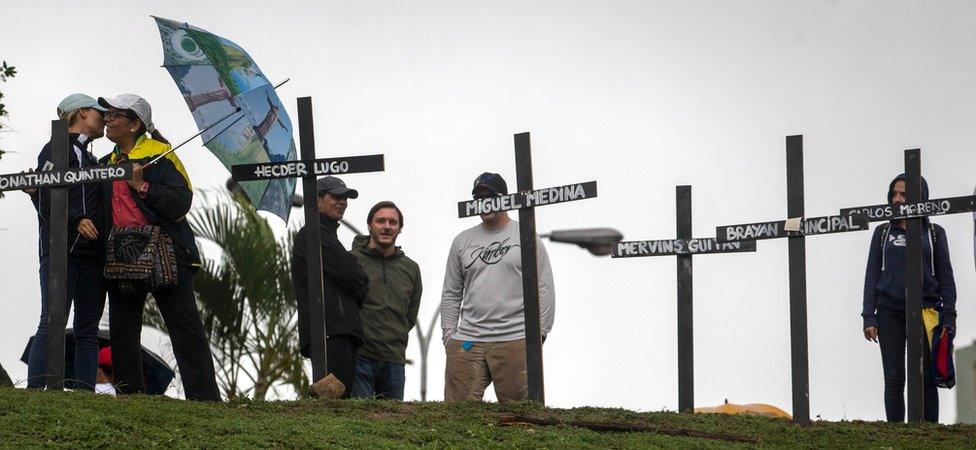
Protesters stand with signs naming some of the dozens killed during the demonstrations
The crisis in Venezuela is due to be discussed by the United Nations Security Council at a meeting in New York later on Wednesday.
On Tuesday, President Maduro extended the nationwide state of economic emergency.
The decree gives Mr Maduro extra powers for another 60 days, from Saturday, including an ability to impose tougher security measures.
He has already extended the measures multiple times since they were first introduced in early 2016.
The extension is needed to "preserve order", said the government newspaper.
The opposition denounced the move as an ongoing rights grab.
Opposition leader Henrique Capriles responded by urging his supporters to take to the streets and protest "more than ever".
Despite having the world's largest known oil reserves, Venezuela is facing a shortage of many basic items, including food and medicines.
Its economy has collapsed, with inflation expected to top 700% this year, and crime is rampant.
The opposition is calling for early elections and the released of opposition politicians jailed in recent years, saying the socialist governments of Mr Maduro and his predecessor, the late Hugo Chavez, have mismanaged the economy since coming to power in 1999.
Mr Maduro accuses the country's business elite of boycotting the economy to create unrest and topple his democratically elected government. His term ends in January 2019.
- Published14 May 2017

- Published17 May 2017
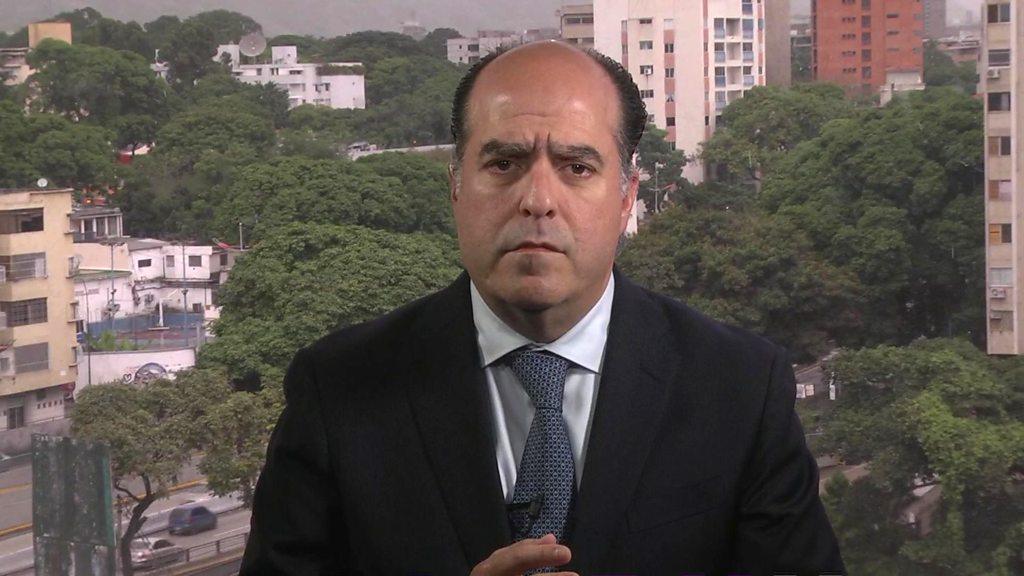
- Published13 May 2017
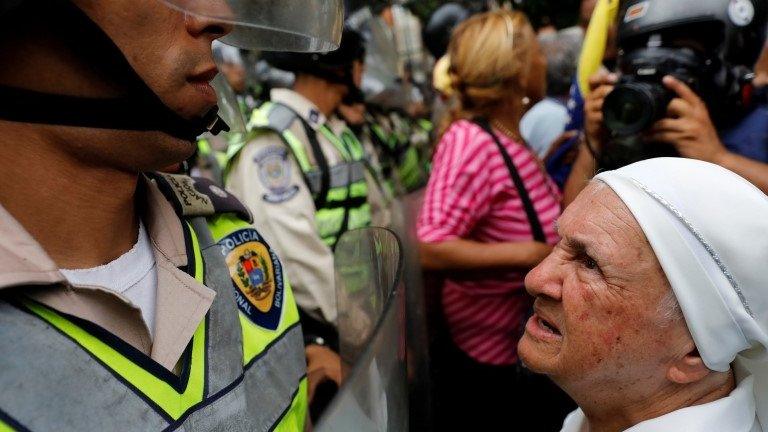
- Published12 May 2017
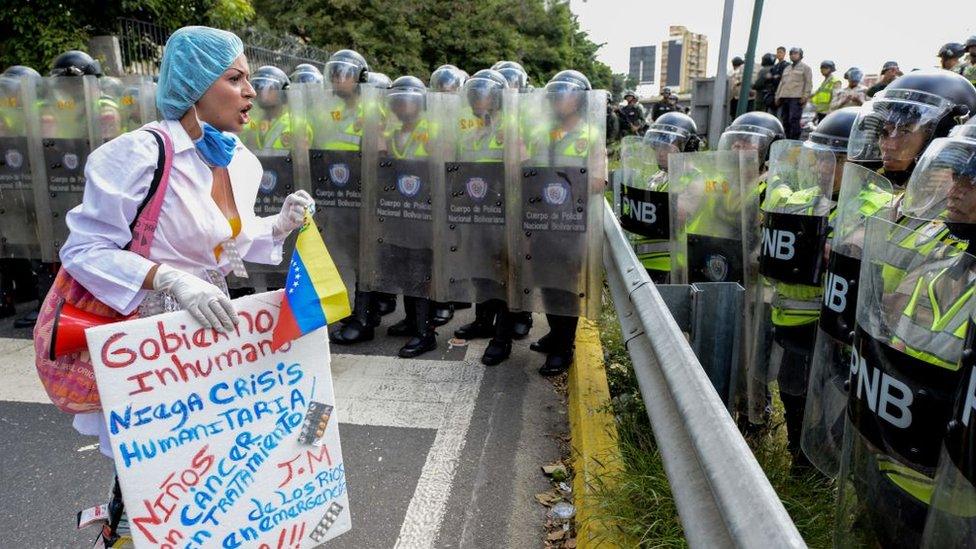
- Published12 May 2017
- Published9 May 2017
